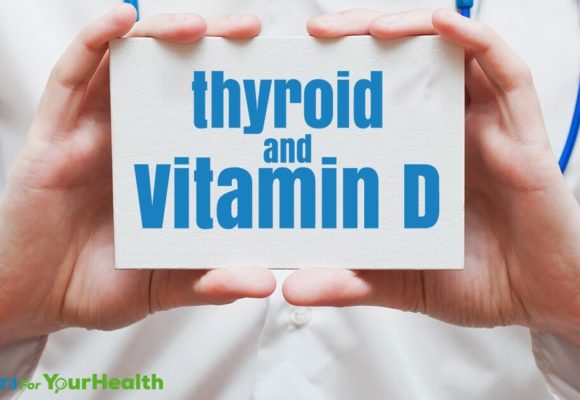1) Grab a FREE copy (Value $14.95) of one of my books Thyroid Symptom Overload
Just pay shipping $7.95 for any US orders. Or, if you want to pay full price plus shipping, order from Amazon :)
2) Take our Thyroid Quiz today and find out what "Thyroid Type" you have
This quiz will help you quickly discover where your symptoms are stemming from.
3) Join Our Thyroid Advocate Membership Site - Natural Thyroid Academy
FREE for a limited time. No credit card required.
4) Work with me and my team privately
Schedule your FREE 15 minute phone consultation and we can find out the best way to help you specifically.
Thyroid diseases is becoming more prevalent. At one point, there were few people suffering from any kind of thyroid disorder. Now, 27 million Americans have some kind of thyroid disease. What this implies is that more and more people are becoming affected by thyroid disorders every single day. Most of them are women 35 years and older
If you haven’t already been diagnosed by some kind of thyroid condition, or if someone in your family isn’t suffering from some thyroid disease, then you may not have an idea about what the thyroid even is.
This article is not only going to tell you about this miraculous gland, but will also make you aware of all the treatment options there are for various kinds of thyroid disorders. Read on to find out more and become equipped with accurate information in order to fight the disease before it gets out of hand.
Understanding the Thyroid Gland and Its Disorders
The thyroid gland is located close to the Adam’s apple in the throat and is shaped like a butterfly. This small endocrine gland is responsible not just for the metabolic system and body temperature, but for many other processes of the body including sexual functions, stress hormones and even the absorption of calcium in bones. This is the reason that when something goes wrong with thyroid hormones, it isn’t only your metabolic system that goes all haywire. The entire body starts malfunctioning in one way or the other.
Basically two things can go wrong with the thyroid gland. It can become overactive and start making and secreting too much of the thyroid hormone, or it can become underactive and lower the production and secretion of the thyroid hormone. These two disorders are known as hyperthyroidism and hypothyroidism respectively.
Hyperthyroidism
When a person suffers from hyperthyroidism, the body’s metabolic system speeds up due to the fact that there is the presence of too much thyroid hormone, thyroxine, in the blood stream. The most common cause of hyperthyroidism is Graves’ disease. It mostly affect women who are under the age of 40. Some common signs and symptoms of hyperthyroidism are:
- Extreme tiredness or exhaustion
- Enlarged goiter
- Irregular heartbeat or palpitations
- Weight loss even though there is an increased appetite
- Sleep issues
- Diarrhea
- Sensitivity to heat
- Mood swings, feelings of nervousness and/or anxiety
- Shaking in hands or fingers, tremors
- Thinning hair
- Changes in periods
- Pale skin
Hypothyroidism
Hypothyroidism is a condition where the thyroid gland becomes too slow and is unable to make enough thyroxine hormone to meet the needs of the body. This slows down the metabolic rate, lowers the temperature of the body and generally slows down the body. Some other common signs and symptoms of hypothyroidism are:
- Weight gain or inability to lose weight effectively
- Changes in menstrual cycle
- Dry hair and skin
- Hair loss
- Fatigue
- Sensitivity to cold
- Lowered heart rate
- Goiter
- Constipation
- Depression and anxiety
- Carpal tunnel syndrome
Graves’ disease
An autoimmune condition, Graves’ disease is believed to be the first step to hyperthyroidism. It has signs and symptoms similar to those of hyperthyroidism. Like all autoimmune conditions, it cannot be cured completely and is something that the patient has for the rest of their life. Women are more at risk of having Graves’ disease than men.
Hashimoto’s Thyroiditis
Hashimoto’s thyroiditis is another autoimmune condition that is said to be the major reason why people have hypothyroidism. The immune system attacks the thyroid gland, which leads to hypothyroidism as the body is unable to produce the right amount of the thyroxine hormone. One of the first signs of the disease is a goiter. Other symptoms are almost the same as those of hypothyroidism.
Treatment Options for Thyroid Diseases
When it comes to treatment options, it all depends on what kind of thyroid problem you have and how far it has progressed. The very first thing you need to do is figure out your symptoms. If you have any of the above signs, then meet with a doctor.
Here are some common treatment options for various kinds of thyroid disorders.
Thyroid Hormone Replacement Therapy
This is one of the most common treatment options for hypothyroidism. It is given in order to up the levels of thyroid hormones in the body so that the low levels can be increased. L-thyroxine or levothyroxine is generally given to patients in the form of oral medication to be taken daily. Brand name of the medicine and dosage varies according to the condition and severity of the patient’s individual situation. Some women react to the binders and fillers that are within the medications. While other women may notice that the symptoms just won’t go away, even while following the advice of their doctor.
What you need to understand is that you can never take this medication on your own, without proper prescription from the doctor. Do not self-medicate or you may end up poisoning yourself or overdosing.
Anti-Thyroid Medications
These medicines are typically given to patients who are suffering from hyperthyroidism, so that the excessive production of the thyroid hormone can be blocked. They are known as propylthiouracil or PTU. They help in blocking the production of the thyroid hormone. They need to be taken 2-3 times a day. Methimazole is the most commonly prescribed drug as PTU, mostly to women who are pregnant and have hyperthyroidism.
Beta-blockers like propranolol, Inderal are also given to hyperthyroidism patients. Iodine solutions are given to patients who have hyperthyroidism because of Graves’ disease.
Sometimes the thyroid gland is also remove surgically in order to get rid of the excessive production of the thyroid hormone. Hormone therapy is then given to the patient for the rest of their life in order to fulfill their need for the thyroid hormone to cover the need of the absent thyroid hormone.
Whatever the mode of treatment, you will need to ask your doctor what the best course of action will be for your individual needs.
References
- https://www.webmd.com/women/guide/understanding-thyroid-problems-basics#1
- https://www.emedicinehealth.com/thyroid_medications/article_em.htm#other_medications_for_hyperthyroidism
- https://www.webmd.com/women/understanding-thyroid-problems-treatment#3








